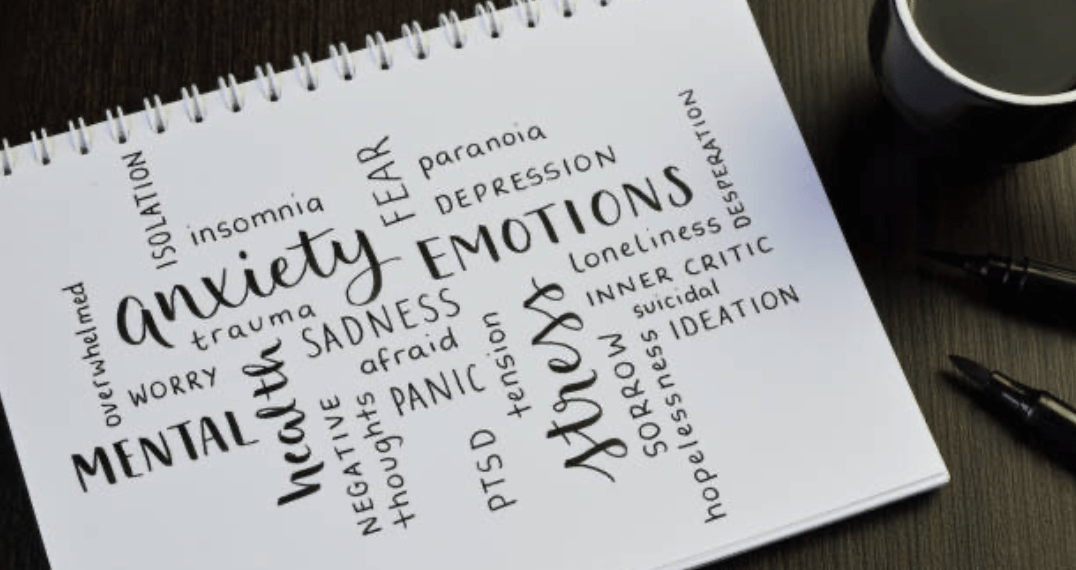This article is based on scientific evidence and clinical experience, written by a licensed professional and fact-checked by experts.
Posted: October 11, 2023
Estimated reading time: 5 minutes

Anxiety stems from a fear of an unknown or uncertain future. Symptoms can range from a general feeling of uneasiness inside to complete panic and excessive fear. In this article, I hope to normalize the anxiety you feel as well as be able to recognize it so you can live fully.
Many can relate to experiencing some unsettling feeling inside they might easily label anxiety, while others may be unaware that what they are feeling is in fact anxiety. It is a common response to our fear of an unknown or uncertain future. Psychologist Dr. John Townsend characterizes anxiety as the result of trying to control something that we perceive to be out of control. Your thoughts and feelings are demanding control over that which is uncontrollable. Symptoms can range from a general feeling of uneasiness inside to complete panic and excessive fear. In this article, I hope to normalize the anxiety you feel as well as be able to recognize it so you can live fully.
You may notice ruminating thoughts during the day or the inability to sleep soundly at night, not being able to turn off your thoughts. You may experience a heightened alertness in situations that otherwise appear normal. Involuntary body reactions like shakiness, fidgeting, sweating, a pounding heart, or gastrointestinal issues point to anxiety. You may avoid certain situations purposefully for the fear of these involuntary responses.
Anxiety tends to keep your mind engaged in the future or an unknown, which is a time and place we can not physically occupy. We can only occupy the present moment, what we can interpret with our senses and name what we are experiencing in the moment. We cannot live in the reality of the present if we are trying to create or prevent a perceived reality in the unknown. When your mind and emotions aren’t occupying the present moment, you miss what is actually right in front of you. You may miss opportunity to initiate, deepen or grow a relationship. You may resist pursuing a job goal, career path or perform at the level you desire or even over perform and burn out. You may feel yourself boxed into certain ways of being in order to control others’ perceptions of you. Staying on the hamster wheel is inevitable because anxiety is usually covering deeper emotions that can navigate us toward growth. Our body has shut down and life has become small.
Here are some steps to living fully and engaging in your life outside the bounds of anxiety.
When you begin to notice anxiety, first bring yourself into the present moment by tuning into your physical experience and asking “what am I feeling right now?” Then, slow down and tune into your body. Notice what you’re experiencing. It may be that you notice your heart beating fast, your chest feels tight, or your stomach feels clenched. Once you name it, continue to stay with it. Try not to judge your self for what you’re experiencing or pressure yourself to get over it. Instead, stay with the feeling and take slow, deep breaths. Do this until you notice a calm in your body. You may begin to feel more in control of your self. Then, take the next really important step. Tune into your emotions and name what you’re feeling. You may be feeling fear, sadness, excitement, or a combination of several emotions. It is in this place that we begin to let go of what we seek to control and move into healing and growing (Jacobs, 2018).
Bring your thoughts and feelings into relationship with someone who can give empathy and understanding. God designed us to deal with these difficult feelings with the support of Himself and others. We know this because God modeled this to us with His instruction In 1 Peter 5:7, “cast all your anxiety on Him, because He cares for you”.
Lastly, consider using anxiety to your advantage. Anxiety can work for you or against you (Gabbard, pg. 261). When you feel anxiety approaching, let it be a signal to you for what you’re trying to control. It can be an invitation for strengthening and growth. If the anxiety you feel is life disrupting and consistently overwhelming, seek professional help that can help you manage and get to the root.
Determine what is actually in your realm of control and exercise your freedom and choice to navigate that realm. Perhaps you need to make a plan, reach out to a safe person for listening or support or ask for help. Getting clear on what is and is not in your control can begin the healing pathway to living fully.
Back to topThis article is based on scientific evidence and clinical experience, written by a licensed professional and fact-checked by experts.

By: Danielle Schaefer